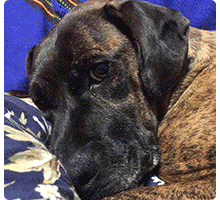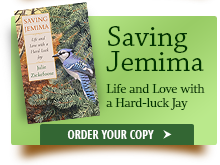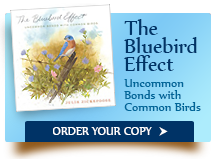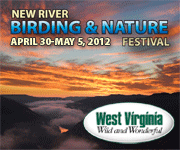
One of the hard things about having your tender and sensitive nine-year-old son be in love with bison is the sad, sad history of the animal on our Great Plains. We entered the Charles M. Russell Museum's brand new bison exhibit in Great Falls, Montana with a little trepidation, knowing the story in advance. A thrilling surround film with thundery, grunty sound effects put us right in the middle of a stampeding herd. And then there came the bones.
To kill off the American Indian, first you must kill off his primary food source: the bison. And so, in the chillingly methodical way of our kind, we did that with speed and efficiency. Hired hunters killed all day long, taking nothing but the tongue, or taking nothing at all. This, when Plains Indians ate each bison they killed clean, used every single hair and sinew from a carcass for something. I cannot imagine the disgust with which they must have viewed this waste, this obscenity we visited upon the animal they valued above all else. And upon them. I cannot imagine why we thought they should welcome us on their hunting grounds, or do anything other than send arrows through us on sight. We'd hang a man for stealing horses. What should be the punishment for sending the American bison, their sacred staff of life, to extinction?
 A photograph of a pile of bison skulls. Not bones, just skulls, stacked. We did this.
A photograph of a pile of bison skulls. Not bones, just skulls, stacked. We did this.We got rid of them, these animals that could teach any cow a thousand lessons about surviving a Montana winter, who could gain weight on forage that would starve cattle.
 Charles M. Russell
Charles M. RussellFrom one of Charles Russell's letters. No one could convey the thunder and confusion of a herd like he could.
 The bison is an icon of the vanished West, and our world is now so cut up and controlled, so plowed under and compartmentalized, that there are no places outside parks where bison can roam, where they wouldn't have to push down fences or cross highways to find the food they need.
The bison is an icon of the vanished West, and our world is now so cut up and controlled, so plowed under and compartmentalized, that there are no places outside parks where bison can roam, where they wouldn't have to push down fences or cross highways to find the food they need. Their hunch-backed, narrow silhouettes haunt me. Once, they ruled the Plains but are now reduced to remnant captive herds, or small wild herds confined to parks and reserves.
Their hunch-backed, narrow silhouettes haunt me. Once, they ruled the Plains but are now reduced to remnant captive herds, or small wild herds confined to parks and reserves.Still, we'd go looking for them, for Liam's sake and ours.
For more on bison and their superb adaptations, see my post, "The Durable Bison,"






15 comments:
Well said.
If only that turn of the century awakening had happened a little sooner.
I read a fascinating book called The Eternal Frontier by Tim Flannery about the history of the North American continent from the extinction of the dinosaurs to the modern era. One of the amazing things about Bison is that, from a geologic perspective, they're relatively recent arrivals to North America, arriving not long before the extinction of the Pleistocene megafauna.
The American Bison only expanded into the Great Plains around 13,000 years ago to fill the niches abandoned by mammoths and ground sloths and camels. It's the same story with Elk and Grizzly Bear and Moose. They all came over the Bering Strait after the most recent Ice Age.
Even more amazing, is that there's evidence of herd-driving by American Indians 12k year ago suggesting the great herds were a response to thousands of years of human predation on Bison. The Bison evolved to travel in those massive herds in response to early American Indian hunting pressure.
So in a sense, we made them, and then 12,000 years later, unmade them in an awful way. It's a great read, you should check it out.
If we take the time to look closely at what we've done to the earth and animals, it's hard not to weep. Was there ever a time when everything was in balance, only taking as much as we needed and leaving the rest? I'd like to think so, but we arrive at this moment after thousands and thousands of years based on a practice of taking as much as we humans can get, and then wanting more. I'm pessimistic.
Thankfully, they were not able to bring the extinction of the Bison or the Native Americans!!
A mighty powerful post here (and thank you for the link to the Durable Bison - I'd not read that one before). It still bothers me how we talk about North America as "our" country, knowing full well that we took it away from the people who were here before us... who knew (and still know) it better than most of us ever will... I'm thankful to have experienced herds of bison up close at the Wilds last September... you make want to go back and revisit the pictures I took of them.
thanks for your brutally honest post Julie- hopefully someday history books will be rewritten to tell the truth of the 'way the west was won' so that history does not repeat itself, as it is so very prone to do. A powerful and moving post that gave me more than a few tears for personal reasons.
Thanks for this important reminder. Another opportunity to say "Not in my name."
Well written Julie. I'm often struck with the thought that this beautiful continent (to be inclusive here) is wasted on the people who inhabit it...but then I see progress - Assateague comes to mind, and I remember to breathe.
You've captured an important difference between cultures so well. I think sometimes people have this false image of the Native American/First Nations relationship with nature as naive and romantic, when in fact it is pragmatic, balanced, and respectful. "We need this animal for food, for clothing, for materials ...and so we will take no more animals that what we need, use them fully and well, and give thanks for what we've been given." Seems like a pretty good way to walk in the world.
@Cindy: Dedicated folks like Patricia Nelson Limerick have been rewriting the history of the west and have built a much more complicated, critical, and real history of Westward expansion and its effects. This museum that Julie and her family visited is in part a legacy of that New Western History. It shouldn't be too hard for you to find soem of this critical stuff.
Julie, I love where you --and Liam-- take us in your blog!
Thanks for sharing this story. I used to try to convey this whole epic in short classroom programs to students in Nebraska and Kansas... tempered through an "official" Park Service lens. It's so important for people to know this story, even if it's really hard to tell.
We all need to know about these wise native creatures; I was taken aback yesterday when I learned an aquaintance had never seen a real buffalo in her life. It seems like it should be mandatory, when living in North America on land that really belongs to others...
Another great one, Zick! I'm so glad we made it to the Charlie Russell museum that day.
Thank you Julie and Liam. My heart breaks when I think of what we have done. I tune in for a Chet fix, but you always touch my heart when you bring to the forefront of conversation what we hath wrought.
As a person who has native american ancestors I am particularly thankful for this post. From my perspective European culture was particularly brutal on the North American culture and ecosystem. This is not to say that Native American culture was in perfect harmony either.
Needless to say we all need to be hopeful that we are learning to have more respect for both those that are different and for the natural world. This post should help to that end. Please tell Liam that there is hope!
Bill;www.wildramblings.xom
I bawled through the 2nd half of Dances With Wolves for the same reasons. A fictional movie, of course, but it still graphically showed the brutal and clueless side of how the US government treated and viewed the native animals and native peoples. You need to take Liam to the National Bison Range in Moiese, MT. One of my favorite places on Earth.
Post a Comment